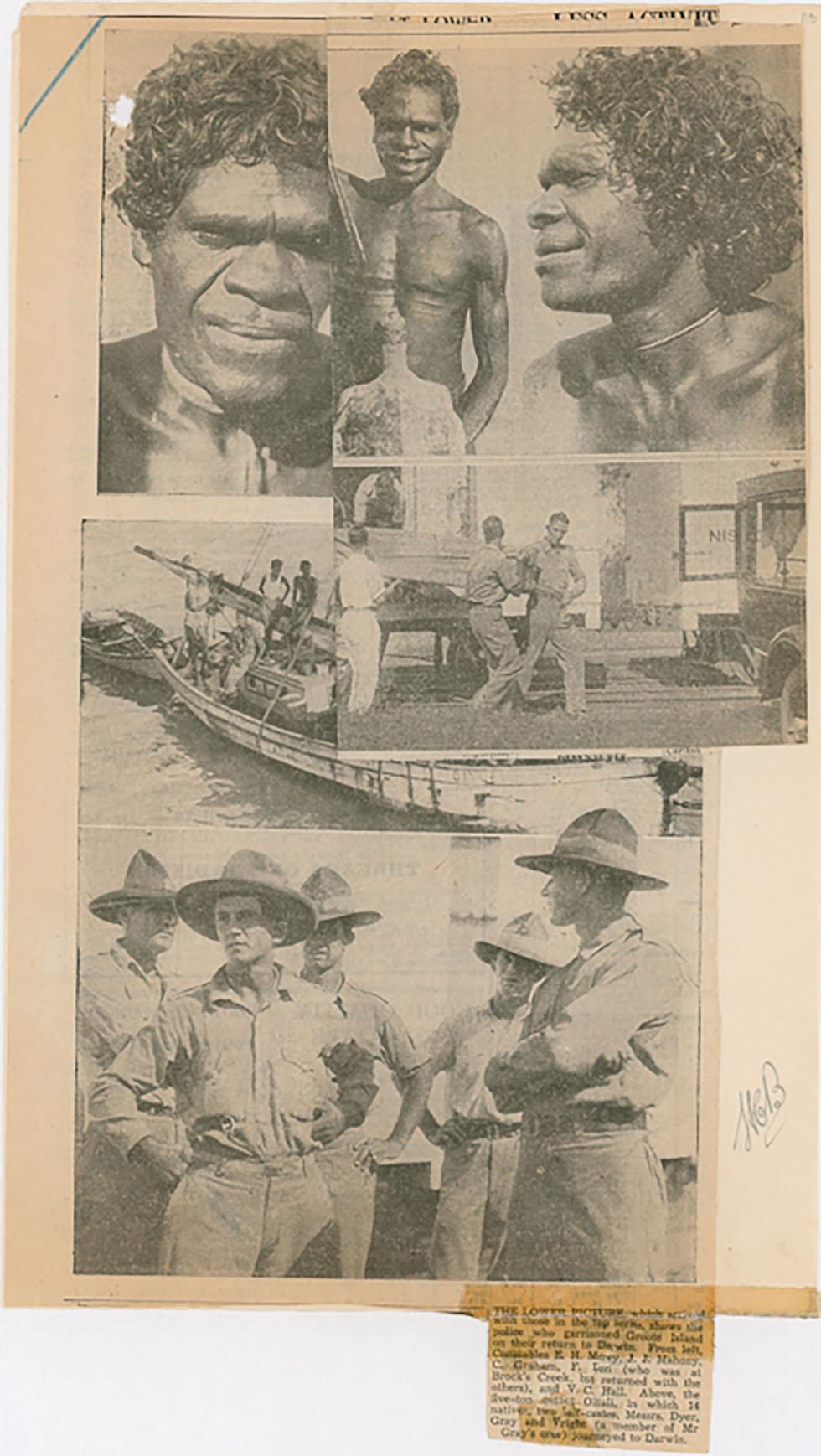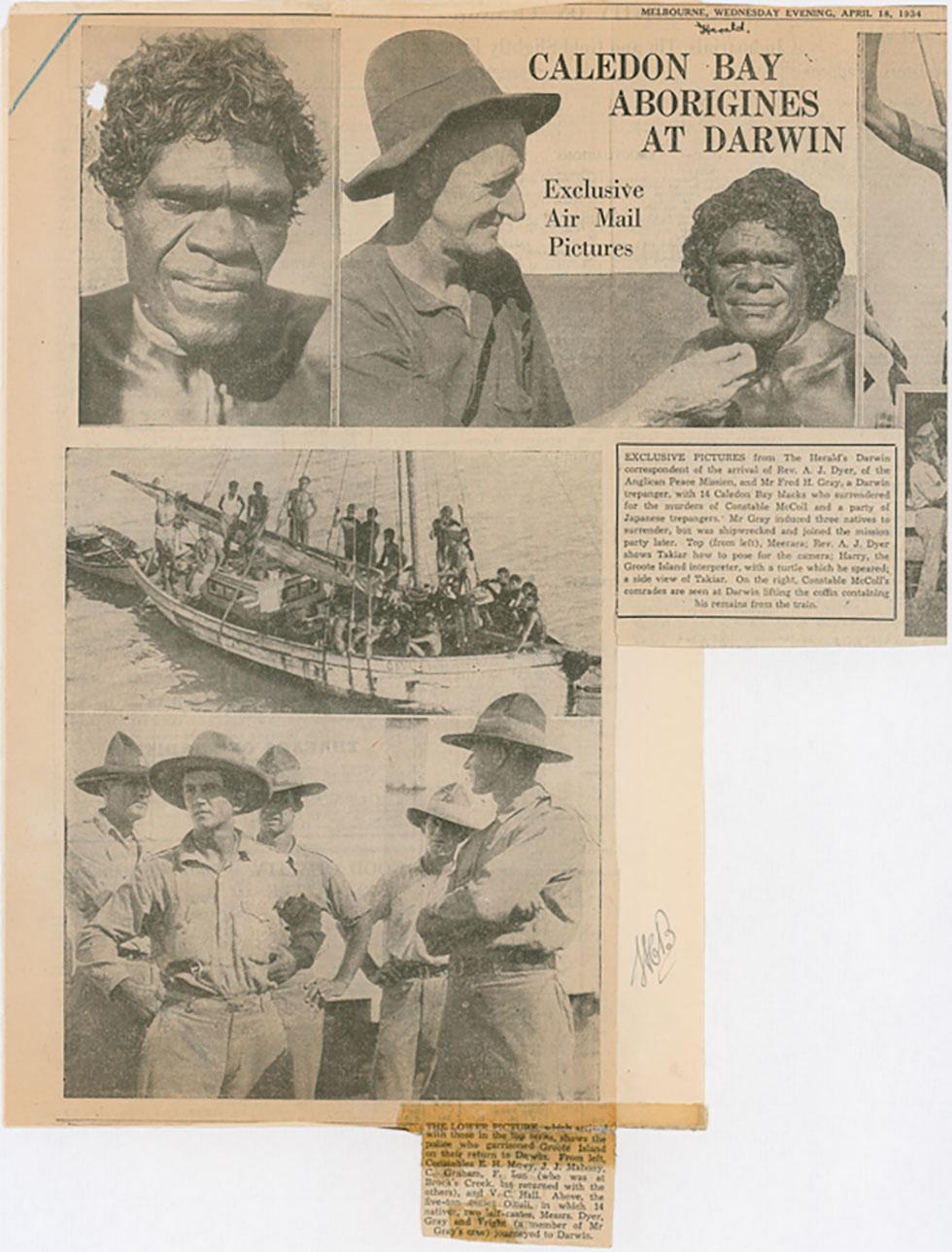

Aboriginal and Torres Strait Islander people should be aware that the National Archives' website and collection contain the names, images and voices of people who have died.
Some records include terms and views that are not appropriate today. They reflect the period in which they were created and are not the views of the National Archives.



[Page 1.]
MELBOURNE, WEDNESDAY EVENING, APRIL 18, 1934
[Handwritten addition:] Herald.
[Headline:] CALEDON BAY ABORIGINES AT DARWIN
[Subheading:] Exclusive Air Mail Pictures
[Four black-and-white photos, with two boxes containing captions. The four photos are a head and shoulders picture of an Aboriginal man called Meerara; a photo of a white man gesturing to an Aboriginal man called Takiar, who smiles at the camera; a photo of a group of Aboriginal men on a medium-sized boat; and a photo of a group of five white men wearing a uniform.]
EXCLUSIVE PICTURES from The Herald's Darwin correspondent of the arrival of Rev. A. J. Dyer, of the Anglican Peace Mission, and Mr Fred H. Gray, a Darwin trepanger, with 14 Caledon Bay blacks who surrendered for the murders of Constable McColl and a party of Japanese trepangers. Mr Gray induced three natives to surrender, but was shipwrecked and joined the mission party later. Top (from left), Meerara; Rev. A. J. Dyer shows Takiar how to pose for the camera; Harry, the Groote Island interpreter, with a turtle which he speared; a side view of Takiar. On the right, Constable McColl's comrades are seen at Darwin lifting the coffin containing his remains from the train.
THE LOWER PICTURE, which arrived with those in the top series, shows the police who garrisoned Groote Island on their return to Darwin. From left, Constables E. H. Morey, J. J. Mahony, C. Graham, F. Lon (who was at Brock's Creek, but returned with the others), and V. C. Hall. Above, the five-ton cutter Oituli, in which 14 natives, two half-castes, Messrs. Dyer, Gray, and Vright (a member of Mr Gray's crew) journeyed to Darwin.
[Page 2.]
[The same newspaper clipping has been refolded so that an additional three photos are visible. The photos are an Aboriginal man called Harry posing with a spear and a turtle; a photo from the side of an Aboriginal man called Takiar; and a photo of four white men picking up a coffin to move it from a train to a car.]
This is a collage of newspaper cuttings, which include an image of Dhakiyarr Wirrpanda, a Yolgnu elder from Arnhem Land in the Northern Territory. Wirrpanda was the first Indigenous person to have his case heard in the High Court. Charged with murdering a policeman, he had been sentenced to death. Since the crime was committed in the Northern Territory, any appeals made in the territory went straight to the High Court.
Learning resource text © Education Services Australia Limited and the National Archives of Australia 2010.
Learn how to interpret primary sources, use our collection and more.
